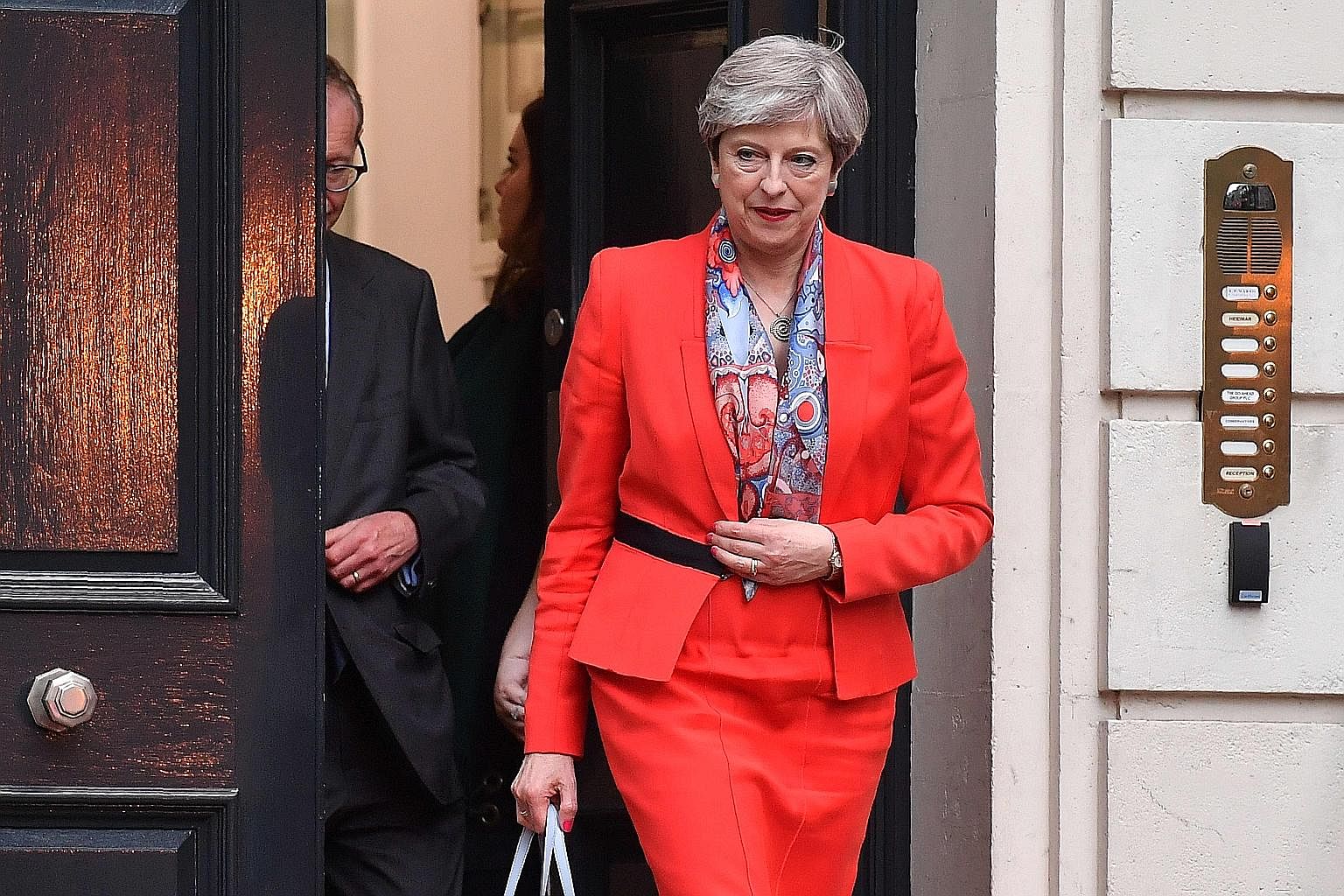Britain's Prime Minister Theresa May has vowed to remain in power in order to "provide stability" and keep the British "safe" despite failing to get the necessary vote to command a majority in Parliament.
Yet notwithstanding the pretence of business as usual in London, Mrs May now looks set to go down in British history as the woman who took the most reckless gamble of all: that of staging a snap early general election which was unnecessary, one which not only destroyed her reputation, but also condemned her country to a prolonged period of instability, precisely the opposite of what she promised to deliver.
She claimed that she needed an early election despite the fact that her term of office ran until 2020, because she wanted a clear mandate to negotiate Britain's exit from the European Union.
And, at first sight, that made sense. Her Conservative government was miles ahead of the opposition Labour in every opinion poll and Mrs May, who only inherited the premiership from Mr David Cameron, her predecessor, could have done with a decisive personal mandate in the run-up to the Brexit talks, which promise to be prolonged and difficult.
But since she made the decision to dissolve Parliament and call a snap poll allegedly during a springtime mountaineering holiday with Philip, her husband, everything that could go wrong duly did.
The Prime Minister appeared to have forgotten the centuries-old rule of British politics that voters hate to be taken for granted and tend to punish politicians who fail to make a strong case for why they need early elections.
For although this election was supposed to be about Brexit, the one topic that Mrs May never addressed was what her negotiating tactic with the EU would be. Voters therefore concluded that the only reason she held the snap vote was that it suited her, and punished her accordingly.

Mrs May also ran a shockingly bad electoral campaign, wooden, lacking in authenticity and warmth, and devoid of any vision, a campaign which was largely concentrated on herself, despite her lack of charisma; it was, as a top Conservative strategist admitted, akin to "running a presidential election without a president".
In contrast, Mr Jeremy Corbyn, the far-left opposition Labour leader who was widely perceived as unelectable, surprised voters with his ability to relate to ordinary people, and charmed them with promises of extra cash for health and social services.
But there were deeper electoral errors which Mrs May committed. The first was to assume that young people won't vote. Yet they did, in larger numbers than before, and they usually voted Labour.
And the second error Mrs May is guilty of is to believe that all those who voted for the UK Independence Party (Ukip), the anti-EU and anti-immigrant movement, will desert that fringe party and return to the ruling Conservatives' fold, now that the question of leaving the EU is decided. Ukip duly collapsed in the election on Thursday, yet many of its voters actually opted for Labour.
There was also a deeper regional divide which confounded electoral strategists. In Scotland, the Conservatives did very well, capturing no fewer than 12 seats largely because voters are growing tired of the separatist message of the province's nationalist politicians. But in north England, the Conservatives failed to make inroads, and in London, they did far worse than expected, probably because they were punished by voters in the British capital who largely tend to support Britain's continued membership in the EU.
Since her party has only 318 MPs in the new Parliament, Mrs May has decided to rule with the support of a group of Northern Irish Protestants, who have 10 additional seats, and can bring the government's support beyond 326 MPs, the magic figure required for overall majority.
But running the country on that slenderest of majorities will be difficult. And the chances of doing so for a full five years of the current mandate remains practically zero; paradoxically, therefore, all that Thursday's election has generated is the need for another general election, probably in a year's time.
Finally, whichever way Mrs May turns now she faces more, rather than less, turmoil. It is impossible for her to claim that she has a mandate to negotiate with the EU; EU negotiators have the upper hand, and her powers to both drive a hard bargain or accept a good compromise are much diminished.
None of this means that the British government will be more pliant on Brexit; at every step, Mrs May will have to watch her parliamentary backbenchers, many of whom detest anything that comes out of Europe. So, instead of flexibility, London is now locked into a politically mandated rigidity.
But the biggest question which will preoccupy London observers is Mrs May's own political survival.
Conservative MP Anna Soubry, who blamed the Prime Minister for a "dreadful campaign", suggested Mrs May should "consider her position".
There is no example in modern British history of a politician recovering from such a monumental electoral failure. And there is no example of such a wounded prime minister staying in power for long.
